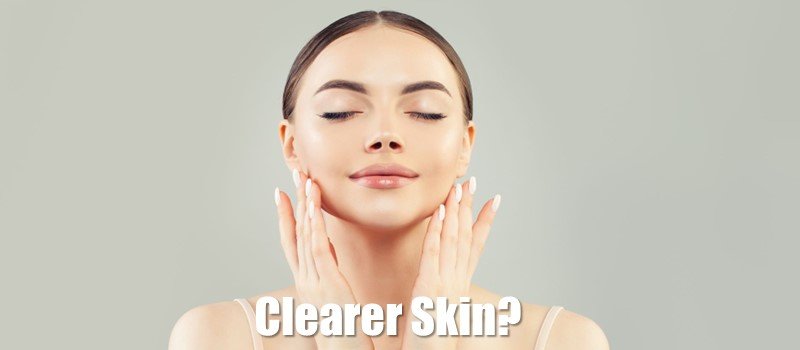Eating a vegan diet can have numerous health benefits, including improving the appearance of your skin. While a vegan diet alone is not a guarantee of perfect skin, it can help nourish your skin from the inside out and support overall skin health. Read on to find out the ways that eating a vegan diet can help improve your skin.
A vegan diet is rich in antioxidants
Antioxidants are compounds that help protect your cells from damage caused by free radicals. These are unstable molecules that can contribute to the development of chronic diseases and skin aging.

A vegan diet is rich in antioxidants from plant-based sources, such as fruits, vegetables, nuts, and seeds, which can help protect your skin from damaging free radicals.
A vegan diet can help reduce inflammation
Inflammation is a normal immune response to injury or infection, but chronic inflammation can contribute to a variety of health problems, including acne, eczema, and other skin conditions.
A vegan diet may help reduce chronic inflammation by eliminating animal-based foods that are high in saturated fat and trans fat, which can promote inflammation.
Plant-based foods, on the other hand, are naturally low in saturated fat and trans fat and may help reduce inflammation.
A vegan diet can provide essential nutrients for healthy skin
A well-planned vegan diet can provide all the nutrients your body needs for healthy skin, including protein, healthy fats, vitamins, and minerals.
Vegan sources of protein, such as beans, lentils, tofu, and nuts, can help support the production of collagen and elastin, which are proteins that help keep your skin firm and elastic.
Healthy fats, such as those found in avocados, nuts, and seeds, can help keep your skin moisturized and supple.
Vitamins and minerals, such as vitamin C, vitamin E, and zinc, are important for skin health and can be found in a variety of plant-based foods.
A vegan diet may help reduce acne
Acne is a common skin condition that is caused by a variety of factors, including genetics, hormones, and diet.
Some studies have suggested that a vegan diet may help reduce acne by decreasing inflammation and improving gut health.
Plant-based foods are naturally low in glycemic index (GI), which is a measure of how quickly a food raises blood sugar levels.
High-GI foods, such as those that are high in refined carbohydrates and sugar, have been linked to acne, so a vegan diet that is low in high-GI foods, i.e. not a vegan junk food diet, may help reduce acne.
A vegan diet can help improve overall health
In addition to its potential benefits for skin health, a vegan diet can have a positive impact on your overall health.
A vegan diet has been shown to have numerous health benefits, including helping to lower blood pressure, reduce the risk of heart disease, and lower cholesterol levels.
When you feel healthy and energized, it can show in your skin, which can give you a radiant, healthy glow.
It is important to note that while a vegan diet can have many benefits for skin health, it is not a guarantee of perfect skin.
Other factors, such as genetics, hormones, and environmental factors, can also impact the appearance of your skin.
However, a well-planned vegan diet that is rich in nutrients and low in processed foods can be a healthy and nourishing choice for your skin and overall health.
If you’re curious about how veganism can enhance your mental clarity and physical wellness, read our in-depth article on the benefits of veganism on mental and physical health.
My Experience
I know from personal experience that my skin tone has improved since eating a vegan diet, and I certainly get fewer spots and blemishes.
I have to say that I don’t find that this is the case when I used to eat more a junk food vegan diet. This did only improve once I started eating a more balanced vegan diet.
Also, I transitioned to using vegan make up, I feel that this had a massive impact on my skin too.
Do Your Research
If you are considering transitioning to a vegan diet, it is important to do your research and make sure you are getting all of the nutrients your body needs.
A vegan diet can be nutritionally complete as long as it includes a variety of plant-based foods and sufficient calories. Some key nutrients to pay attention to include protein, iron, calcium, and vitamin B12.
Good sources of protein on a vegan diet include beans, lentils, tofu, tempeh, nuts, and seeds. Fortified plant-based milks and cereals can be good sources of calcium, and iron can be found in leafy green vegetables, beans, and fortified foods.
Vitamin B12 is an important nutrient that is found almost exclusively in animal products, so it is important for vegans to include fortified foods or supplements in their diet.
If you are struggling to get all of the nutrients you need on a vegan diet, you may want to consider consulting with a registered dietitian or nutritionist.
They can help you plan a well-balanced vegan diet that meets your individual needs and can help ensure that you are getting all of the nutrients your body needs.
Final Thoughts: Can Eating A Vegan Diet Help Improve My Skin?
In conclusion, a vegan diet can have numerous benefits for skin health, including providing antioxidants, reducing inflammation, and providing essential nutrients. While a vegan diet alone is not a guarantee of perfect skin, it can help nourish your skin from the inside out and support overall skin health. If you are considering transitioning to a vegan diet, it is important to do your research and make sure you are getting all of the nutrients your body needs. With a little bit of planning and preparation, a vegan diet can be a healthy and nourishing choice for your skin and overall health.
